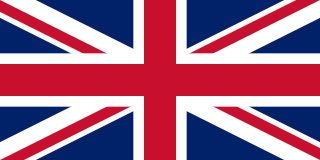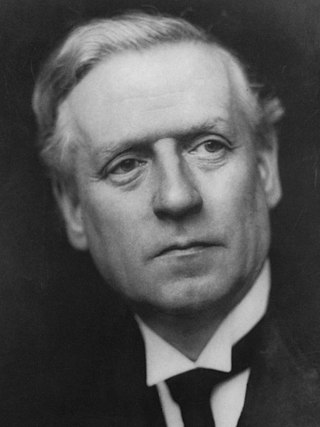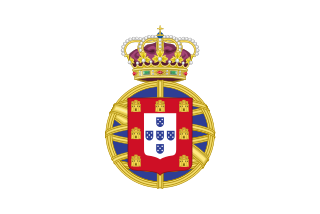
This is part of the list of United Kingdom locations: a gazetteer of place names in the United Kingdom showing each place's locality and geographical coordinates.

This is part of the list of United Kingdom locations: a gazetteer of place names in the United Kingdom showing each place's locality and geographical coordinates.
| Location | Locality | Coordinates (links to map & photo sources) | OS grid reference |
| Newnes | Shropshire | 52°54′N2°55′W / 52.90°N 02.92°W | SJ3834 |
| Newney Green | Essex | 51°44′N0°23′E / 51.73°N 00.38°E | TL6507 |
| Newnham | Cambridgeshire | 52°11′N0°06′E / 52.19°N 00.10°E | TL4457 |
| Newnham (Newnham on Severn) | Gloucestershire | 51°47′N2°27′W / 51.79°N 02.45°W | SO6911 |
| Newnham | Hampshire | 51°16′N0°59′W / 51.27°N 00.99°W | SU7053 |
| Newnham | Hertfordshire | 52°01′N0°11′W / 52.01°N 00.19°W | TL2437 |
| Newnham | Kent | 51°16′N0°47′E / 51.27°N 00.79°E | TQ9557 |
| Newnham | Northamptonshire | 52°13′N1°10′W / 52.22°N 01.16°W | SP5759 |
| Newnham | Warwickshire | 52°14′N1°47′W / 52.23°N 01.78°W | SP1560 |
| Newnham Bridge | Worcestershire | 52°19′N2°31′W / 52.31°N 02.52°W | SO6469 |
| New Ollerton | Nottinghamshire | 53°12′N1°01′W / 53.20°N 01.01°W | SK6668 |
| New Oscott | Birmingham | 52°32′N1°51′W / 52.54°N 01.85°W | SP1094 |
| Location | Locality | Coordinates (links to map & photo sources) | OS grid reference |
| New Rackheath | Norfolk | 52°39′N1°22′E / 52.65°N 01.37°E | TG2812 |
| New Radnor | Powys | 52°14′N3°09′W / 52.23°N 03.15°W | SO2160 |
| New Ridley | Northumberland | 54°55′N1°55′W / 54.92°N 01.92°W | NZ0559 |
| New Road Side | Bradford | 53°44′N1°46′W / 53.73°N 01.77°W | SE1527 |
| New Road Side | North Yorkshire | 53°52′N2°02′W / 53.87°N 02.04°W | SD9742 |
| New Romney | Kent | 50°58′N0°56′E / 50.97°N 00.93°E | TR0624 |
| New Rossington | Doncaster | 53°28′N1°05′W / 53.46°N 01.08°W | SK6197 |
| New Row | Ceredigion | 52°20′N3°53′W / 52.34°N 03.88°W | SN7273 |
| New Row | Lancashire | 53°50′N2°32′W / 53.83°N 02.54°W | SD6438 |
| Newry | Co. Armagh | 54°10′N6°21′W / 54.17°N 06.35°W | J085265 |
| Location | Locality | Coordinates (links to map & photo sources) | OS grid reference |
| Newtake | Devon | 50°31′N3°35′W / 50.51°N 03.58°W | SX8870 |
| New Thirsk | North Yorkshire | 54°13′N1°21′W / 54.22°N 01.35°W | SE4281 |
| Newthorpe | North Yorkshire | 53°47′N1°17′W / 53.78°N 01.28°W | SE4732 |
| Newthorpe | Nottinghamshire | 53°00′N1°17′W / 53.00°N 01.28°W | SK4846 |
| Newthorpe Common | Nottinghamshire | 53°00′N1°18′W / 53.00°N 01.30°W | SK4745 |
| New Thundersley | Essex | 51°34′N0°33′E / 51.57°N 00.55°E | TQ7789 |
| Newtoft | Lincolnshire | 53°22′N0°26′W / 53.36°N 00.43°W | TF0486 |
Britain most often refers to:

The Parliament of the United Kingdom of Great Britain and Northern Ireland is the supreme legislative body of the United Kingdom, and may also legislate for the Crown Dependencies and the British Overseas Territories. It meets at the Palace of Westminster in London. Parliament possesses legislative supremacy and thereby holds ultimate power over all other political bodies in the United Kingdom and the Overseas Territories. While Parliament is bicameral, it has three parts: the sovereign, the House of Lords, and the House of Commons. The three parts acting together to legislate may be described as the King-in-Parliament. The Crown normally acts on the advice of the prime minister, and the powers of the House of Lords are limited to only delaying legislation; thus power is de facto vested in the House of Commons.

Northern Ireland is a part of the United Kingdom in the north-east of the island of Ireland that is variously described as a country, province or region. Northern Ireland shares an open border to the south and west with the Republic of Ireland. At the 2021 census, its population was 1,903,175, making up around 3% of the UK's population and 27% of the population on the island of Ireland. The Northern Ireland Assembly, established by the Northern Ireland Act 1998, holds responsibility for a range of devolved policy matters, while other areas are reserved for the UK Government. The government of Northern Ireland cooperates with the government of Ireland in several areas under the terms of the Belfast Agreement. The Republic of Ireland also has a consultative role on non-devolved governmental matters through the British–Irish Governmental Conference (BIIG).

The prime minister of the United Kingdom is the head of government of the United Kingdom. The prime minister advises the sovereign on the exercise of much of the royal prerogative, chairs the Cabinet and selects its ministers. As modern prime ministers hold office by virtue of their ability to command the confidence of the House of Commons, they sit as members of Parliament. The current prime minister is Rishi Sunak of the Conservative Party, who assumed the office on 25 October 2022.

A primary school, elementary school, or grade school is a school for primary education of children who are 4 to 10 years of age. Primary schooling follows preschool and precedes secondary schooling.

The United Kingdom of Great Britain and Northern Ireland, commonly known as the United Kingdom (UK) or Britain, is a country in Northwestern Europe, off the coast of the continental mainland. It comprises England, Scotland, Wales, and Northern Ireland. It includes the island of Great Britain, the north-eastern part of the island of Ireland, and most of the smaller islands within the British Isles. Northern Ireland shares a land border with the Republic of Ireland; otherwise, the United Kingdom is surrounded by the Atlantic Ocean, the North Sea, the English Channel, the Celtic Sea, and the Irish Sea. The total area of the United Kingdom is 94,354 square miles (244,376 km2), with an estimated population of nearly 67.6 million people in 2022.
The Peerage of Ireland consists of those titles of nobility created by the English monarchs in their capacity as Lord or King of Ireland, or later by monarchs of the United Kingdom of Great Britain and Ireland. It is one of the five divisions of Peerages in the United Kingdom. The creation of such titles came to an end in the 19th century. The ranks of the Irish peerage are duke, marquess, earl, viscount and baron. As of 2016, there were 135 titles in the Peerage of Ireland extant: two dukedoms, ten marquessates, 43 earldoms, 28 viscountcies, and 52 baronies. However, these titles have no official recognition in the Republic of Ireland, with Article 40.2 of the Constitution of Ireland forbidding the state conferring titles of nobility and stating that an Irish citizen may not accept titles of nobility or honour except with the prior approval of the Irish government.

The Kingdom of England was a sovereign state on the island of Great Britain from the early 10th century, when it emerged from various Anglo-Saxon kingdoms, until 1 May 1707, when it united with Scotland to form the Kingdom of Great Britain, which would later become the United Kingdom. The Kingdom of England was among the most powerful states in Europe during the medieval and early modern colonial periods.

The December 1910 United Kingdom general election was held from 3 to 19 December. It was the last general election to be held over several days and the last to be held before the First World War.

These are lists of places in Wales.

According to the Deuteronomistic history in the Hebrew Bible, a United Monarchy or United Kingdom of Israel existed under the reigns of Saul, Eshbaal, David, and Solomon, encompassing the territories of both the later kingdoms of Judah and Israel.

The Parliament of the United Kingdom currently has 650 parliamentary constituencies across the constituent countries, each electing a single member of parliament (MP) to the House of Commons by the plurality voting system, ordinarily every five years. Voting last took place in all 650 of those constituencies at the United Kingdom general election on 12 December 2019.

The United Kingdom of Portugal, Brazil and the Algarves was a pluricontinental monarchy formed by the elevation of the Portuguese colony named State of Brazil to the status of a kingdom and by the simultaneous union of that Kingdom of Brazil with the Kingdom of Portugal and the Kingdom of the Algarves, constituting a single state consisting of three kingdoms.

The unitary authorities of England are a type of local authority responsible for all local government services in an area. They combine the functions of a non-metropolitan county council and a non-metropolitan district council, which elsewhere in England provide two tiers of local government.

The Kingdom of Portugal was a monarchy in the western Iberian Peninsula and the predecessor of the modern Portuguese Republic. Existing to various extents between 1139 and 1910, it was also known as the Kingdom of Portugal and the Algarves after 1415, and as the United Kingdom of Portugal, Brazil and the Algarves between 1815 and 1822. The name is also often applied to the Portuguese Empire, the realm's overseas colonies.

The United Kingdom has participated in the Eurovision Song Contest 65 times. It first took part in the second contest in 1957 and has entered every year since 1959. Along with Sweden and the Netherlands, the UK is one of only three countries with Eurovision victories in four different decades. It is one of the "Big Five" countries, along with France, Germany, Italy and Spain, that are automatically prequalified for the final each year as they are the biggest financial contributors to the European Broadcasting Union (EBU). The British national broadcaster, the BBC, broadcasts the event and has, on multiple occasions, organised different national selection processes to choose the British entry. The United Kingdom has won the Eurovision Song Contest five times, and has finished as runner-up on a record sixteen occasions. The UK has hosted the contest a record nine times, four times in London and once each in Edinburgh (1972), Brighton (1974), Harrogate (1982), Birmingham (1998), and Liverpool (2023).

Since 1922, the United Kingdom has been made up of four countries: England, Scotland, Wales and Northern Ireland. The UK Prime Minister's website has used the phrase "countries within a country" to describe the United Kingdom. Some statistical summaries, such as those for the twelve NUTS 1 regions of the UK, refer to Northern Ireland, Scotland, and Wales as "regions". With regard to Northern Ireland, Scotland and Wales particularly, the descriptive name one uses "can be controversial, with the choice often revealing one's political preferences".